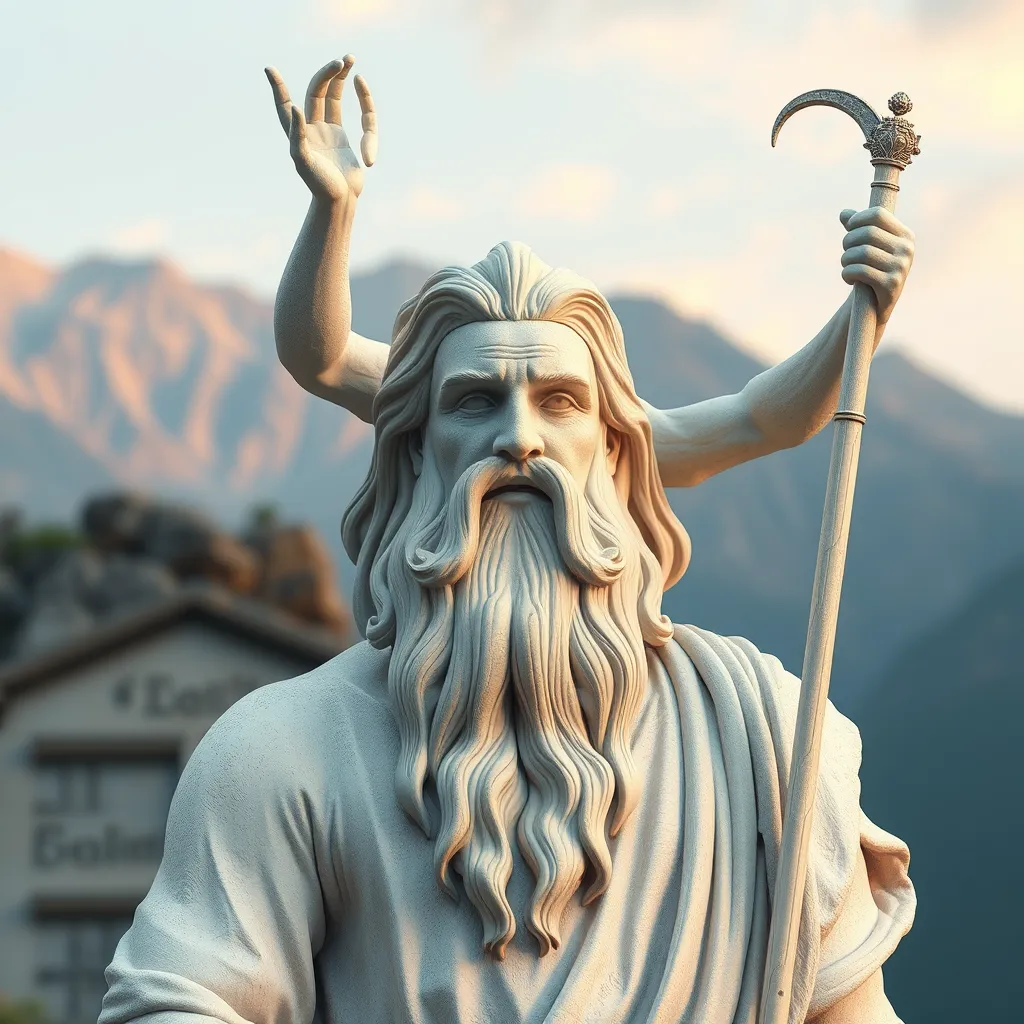The Legacy of Zeus in Contemporary Religion and Spirituality
I. Introduction
Zues, the king of the gods in ancient Greek religion, was revered as the god of the sky, lightning, and thunder. He held a central position in the Greek pantheon and was known for his authority and power. The study of Zeus, his significance, and his legacy extends beyond ancient texts and rituals. Understanding contemporary interpretations and influences of Zeus provides insight into how ancient beliefs continue to shape modern spirituality.
This article aims to explore the multifaceted legacy of Zeus, examining his historical context, current worship practices, representations in popular culture, and his interactions with other religious traditions. Through this exploration, we can appreciate the enduring relevance of Zeus in contemporary religious landscapes.
II. Historical Context of Zeus
Zeus, as the ruler of Mount Olympus, played a crucial role in Greek mythology. He was the son of Cronus and Rhea and the brother of notable deities such as Poseidon and Hades. Zeus was often depicted as a figure of authority, embodying the concepts of justice, order, and power.
Throughout ancient Greece, Zeus was worshipped in various forms and was associated with numerous epithets, such as Zeus Olympios, Zeus Horkios, and Zeus Xenios. His symbolism was deeply intertwined with the concepts of kingship and divine law, making him a figure of both fear and reverence.
As time passed and the ancient Greek religion declined, the worship of Zeus transitioned into more philosophical interpretations. The rise of monotheistic religions and changes in societal values led to a reinterpretation of Zeus, yet his archetype has persisted through various cultural lenses.
III. Zeus in Modern Paganism and Hellenism
In recent years, there has been a resurgence of interest in ancient Greek religious practices, particularly within modern Paganism and Hellenism. This revival seeks to reconnect with the beliefs and rituals of ancient Greece, including the worship of Zeus.
- Revival of Ancient Practices: Groups such as the Hellenic Polytheistic Community have emerged, dedicated to honoring the gods of ancient Greece, including Zeus.
- Contemporary Hellenic Polytheism: Zeus is often seen as a central figure in these practices, embodying the principles of justice and governance.
- Rituals and Offerings: Modern worshippers may perform rituals that include offerings of wine, incense, and prayers to connect with Zeus and seek his blessings.
IV. Zeus in Popular Culture and Media
The representation of Zeus has evolved significantly in literature, film, and television, reflecting changing societal values and perceptions. From ancient texts to modern media, Zeus remains a compelling figure.
- Literature: Zeus has been portrayed in numerous literary works, from Homer’s “Iliad” to Rick Riordan’s “Percy Jackson” series, where he is often depicted as a powerful yet flawed deity.
- Film and Television: Movies like “Clash of the Titans” and series such as “Hercules” have cemented Zeus’s place in popular culture, often emphasizing his role as a father and ruler.
- Cultural Icon: Zeus has become a cultural symbol, representing authority and power, while also being critiqued for his moral complexities.
V. Syncretism: Zeus and Other Religious Traditions
The figure of Zeus has encountered various religious traditions throughout history, leading to interesting syncretic relationships. The comparison of Zeus with deities from other cultures sheds light on his universal themes.
- Comparative Analysis: Zeus shares characteristics with other thunder deities, such as Jupiter in Roman mythology and Indra in Hinduism, emphasizing themes of power and justice.
- Monotheistic Interpretations: In some contexts, Zeus has been reinterpreted as an aspect of a singular divine source, reflecting the influences of monotheism on ancient polytheistic beliefs.
- Modern Spiritual Movements: Various new-age spiritual movements may draw on the archetype of Zeus to promote ideas of leadership and personal empowerment.
VI. The Psychological and Archetypal Aspects of Zeus
From a psychological perspective, Zeus can be viewed through Jungian lenses as an archetype representing authority and the father figure. This interpretation allows for a deeper understanding of his role in both personal and collective consciousness.
- Jungian Interpretations: Zeus embodies qualities of the hero and the wise ruler, making him a potent symbol in individual psychological development.
- Collective Consciousness: The figure of Zeus resonates universally, representing the struggle for order and justice within society.
- Application in Modern Spirituality: Traits associated with Zeus, such as leadership, strength, and fairness, are often invoked in self-development practices and spiritual teachings.
VII. Challenges and Critiques of Zeus’ Legacy
Despite his enduring influence, the legacy of Zeus is not without challenges and critiques. Contemporary discussions often address the ethical implications of ancient deities in modern contexts.
- Criticisms of Ancient Deities: Some argue that the moral complexities of Zeus’s actions in mythology present challenges when applying his archetype in modern spirituality.
- Relevance in Ethical Discussions: The portrayal of Zeus often raises questions about authority, power dynamics, and their implications in today’s societal structures.
- Addressing Misconceptions: It is essential to confront and dispel stereotypes associated with Zeus, promoting a nuanced understanding of his character and legacy.
VIII. Conclusion
In summary, the legacy of Zeus continues to exert influence in contemporary spirituality, popular culture, and religious practices. Understanding ancient deities like Zeus in modern contexts enriches our comprehension of human beliefs and values.
As society evolves, the interpretation of figures like Zeus may adapt, yet their core themes of power, justice, and authority remain relevant. Future studies of Zeus and similar figures can illuminate the complexities of spirituality and the ways ancient beliefs intersect with contemporary life.




